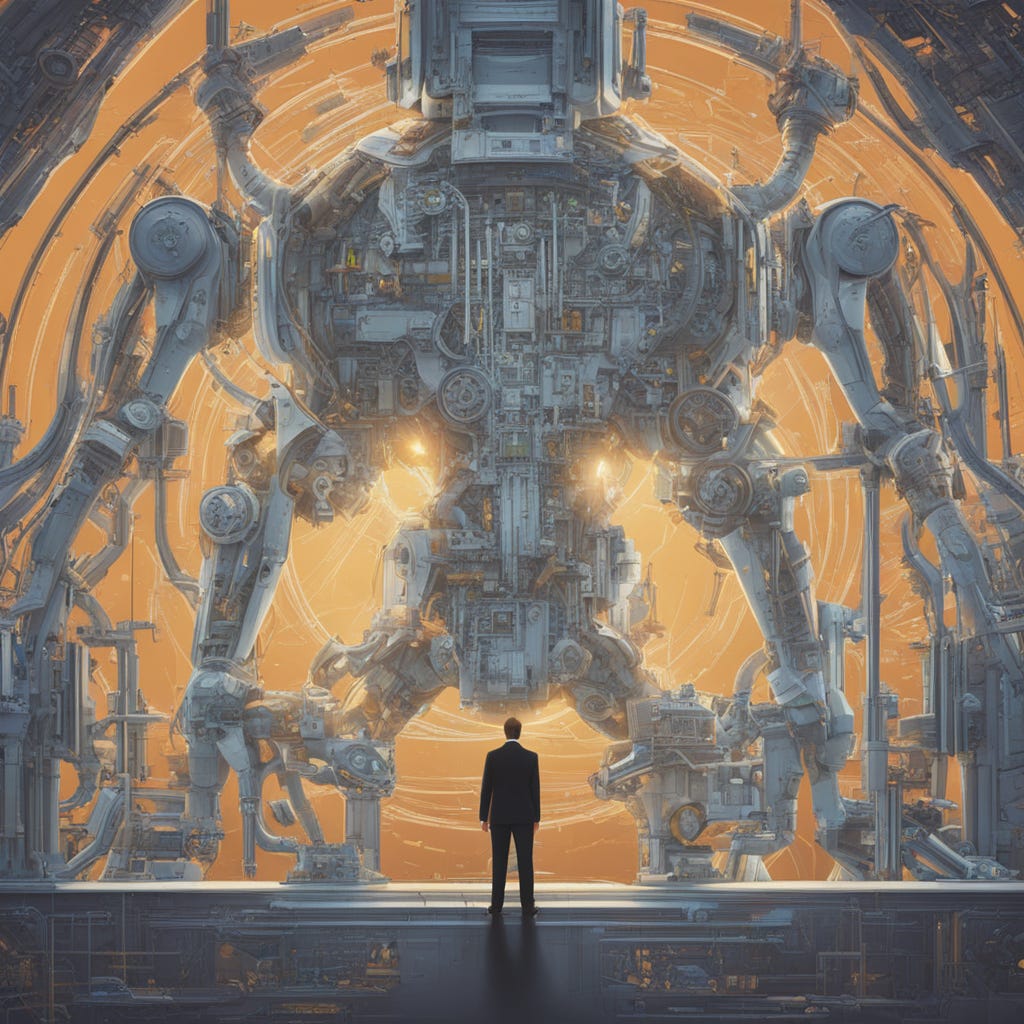Artificial Empathy
Design by Jelena83
Artificial empathy, or the simulation of human emotions in machines, is a groundbreaking concept that aims to bridge the gap between humans and technology.
It can potentially revolutionize various industries by creating more compassionate and understanding interactions with machines. In this post, I want to discuss its potential applications and the ethical considerations surrounding its development.
Empathy
It is a human characteristic that allows us to connect and emotionally support one another. Empathy goes beyond simply sympathizing with someone; it involves genuinely putting ourselves in their shoes and experiencing their emotions as if they were our own.
So, in short, empathy is the beautiful ability to feel and understand the feelings of others, allowing us to create a more connected world.
Artificial Empathy
Artificial empathy refers to the ability of machines, such as robots or virtual assistants, to understand and respond to human emotions.
Teaching an AI about empathy — and learning about ourselves - | MIT Media Lab
Through sophisticated algorithms and machine learning techniques, these intelligent systems can decipher subtle cues from facial expressions, vocal intonations, and body language, enabling them to establish a deep understanding of human emotional states.
Humans and Machines
By simulating empathy, machines can provide more personalized and compassionate interactions, enhancing user experience and building stronger connections.
This has significant implications across various industries, such as customer service, healthcare, and entertainment, where understanding and responding to human emotions is vital.
Machines Assisting Humans
Integrating emotional intelligence into machines improves user satisfaction and engagement and opens up new possibilities for technology to positively impact our daily lives.
With this technology, machines have the potential to become more than just tools or devices; they can become companions and confidants, capable of providing comfort, support, and understanding.
Robots equipped with empathetic capabilities.
By harnessing the power of artificial intelligence, machines could transform how we interact with technology, ultimately enhancing our overall well-being and quality of life.
Industries for Artificial Empathy
The application of artificial empathy has the potential to transform our interactions with technology across different industries completely.
Its diverse and extensive range of uses makes it an up-and-coming development area for multiple sectors, for example:
1. Healthcare - Artificial empathy has significant potential in the healthcare industry. For instance, robots equipped with empathetic capabilities can provide emotional support to patients suffering from mental health disorders or chronic illnesses. They can listen attentively, offer encouragement, and even engage in therapeutic activities to alleviate stress and anxiety.
2. Customer Service - Artificial empathy can revolutionize interactions with chatbots and virtual assistants in customer service. By understanding and responding appropriately to customer emotions, these AI-powered systems can provide more personalized assistance and resolve issues effectively. This can lead to improved customer satisfaction and loyalty.
3. Education - Artificial empathy can enhance remote learning experiences in education. Virtual tutors or educational chatbots can detect students' frustration or confusion and adapt their teaching styles accordingly. These systems can foster a more engaging and effective learning environment by providing tailored feedback and emotional support.
Developing Artificial Empathy
While artificial empathy revolutionizes various fields, such as healthcare and customer service, several challenges must be addressed for its successful development and implementation.
Artificial Empathy | Trishan Panch | TEDxBoston
These challenges range from technical limitations and ethical concerns to the need for extensive research and testing.
It ensures that artificial empathy systems can accurately understand and respond to various human emotions and adapt to individual differences and cultural contexts.
1. Ethics - Developing machines that simulate empathy raises ethical questions regarding privacy, consent, and manipulation. Care must ensure that user data is handled responsibly and that individuals are aware when interacting with empathetic machines.
2. Accuracy and Interpretation - Creating machines that accurately interpret human emotions is complicated. It requires sophisticated algorithms and large datasets to train AI models effectively. Furthermore, cultural nuances and individual differences in emotional expression must be considered to avoid misinterpretations.
3. Emotional Authenticity - Machines must exhibit emotional authenticity to build user trust. Mimicking emotions without genuine emotional understanding can lead to disconnection and distrust. Striking the right balance between authenticity and technological limitations is crucial for successful implementation.
Ex - Machina and Artificial Empathy
Ex Machina, the science fiction film directed by Alex Garland, explores the fascinating concept of artificial empathy.
EX MACHINA Official Trailer #1 (2015) - Sci-Fi Thriller HD
The movie tells the story of the relationship between humans and artificial intelligence, raising questions about the capacity of machines to understand and experience emotions.
In the following clip, Ava turns to Caleb, her eyes fixed on him intently, as she prepares to put his human character to the ultimate test. With a hint of curiosity, she asks, "Are you a good person?"
Ava tests Caleb | "Are you a good person?" | Exmachina movie clip
Artificial empathy, as presented in Exmachina, challenges our notions of what it means to be human. It raises profound ethical questions about creating and treating AI beings that possess emotions and feelings.
Can machines genuinely understand and empathize with human experiences? Should they be held accountable for their actions if they are capable of empathy?
Machine Learning in Artificial Empathy
Machine learning plays a crucial role in developing artificial empathy. Machines can learn to recognize patterns and accurately interpret human emotions by training algorithms on vast amounts of emotional data. Natural language processing (NLP) techniques enable devices to analyze text or voice input, extract emotional cues, and generate appropriate responses.
Examples of Artificial Empathy
By harnessing the power of artificial empathy, companies aim to enhance customer experiences, improve user interactions, and ultimately foster stronger connections between humans and technology.
As a result, we can expect to see many innovative solutions that prioritize empathy and emotional intelligence shortly. Several companies are already exploring artificial hearts in their products and services:
1. Soul Machines: This New Zealand-based company develops lifelike virtual assistants that display realistic facial expressions and emotions. These assistants aim to provide more human-like interactions in various industries.
2. Affectiva: Affectiva specializes in emotion recognition software. Their technology allows machines to analyze facial expressions and gestures in real time, enabling them to respond empathetically.
Last Thought
As we explore in this post, Artificial empathy can potentially revolutionize various industries, enhancing how humans interact with machines. Its wide-ranging healthcare and customer service applications can bring more compassionate and understanding interactions.
Successful implementation requires careful consideration of ethical concerns, accuracy challenges, and emotional authenticity. As technology evolves, artificial empathy is expected to play an increasingly significant role in shaping our interactions with machines.
































![[ℕ𝕖𝕧𝕖𝕣] 𝕊𝕖𝕝𝕝 𝕐𝕠𝕦𝕣 𝔹𝕚𝕥𝕔𝕠𝕚𝕟 - And Now What.... Pray To The God Of Hopium?](https://cdn.bulbapp.io/frontend/images/79e7827b-c644-4853-b048-a9601a8a8da7/1)






